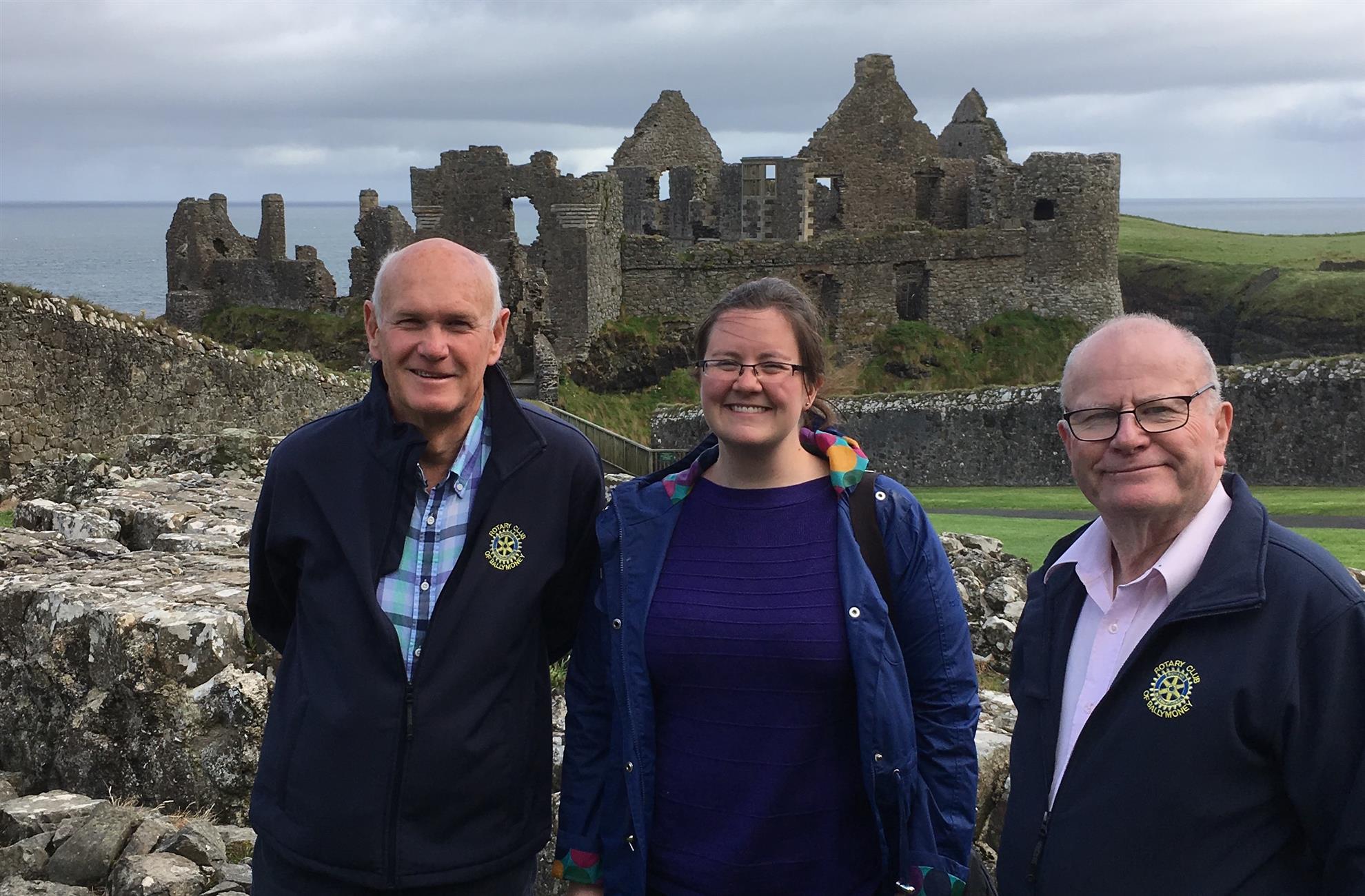January Foundation Greeting from Michelle Bell
Happy New Year! It’s hard to believe the beginning of 2018 has arrived. But don’t fret, as we are only halfway through the Rotary year and there’s still plenty of time to make your donation or to plan a Global Grant project! If you have something in the works, please let the Foundation Committee .jpg) know so we can help promote your project. know so we can help promote your project.
It’s also not too early to plan for 2-18-2019 District Grants. Dates for Grant Management Seminars will be published in the February issue of Foundation First.
What’s your 2018 resolution for Rotary? I urge you to make one and ask a fellow Rotarian to hold you accountable to that resolution.
My resolution is to actively solicit more Global Grant participation across the district. I hope you hold me accountable as well!
|
|
|
Calling on District 5970 Clubs to put service above self!
Guaranteeing universal access to sanitation in homes is essential to reducing disease and improving nutrition, safety, wellness and educational opportunities, especially for women and young girls.
Managua and Cedar Rapids Metro North Rotary Clubs, in collaboration with Habitat for Humanity Nicaragua, have joined forces to improve sanitation conditions for 60 Nicaraguan families (around 300 people) who live in poverty.
The total project budget for this Global Grant is $95,000, and we are calling upon other clubs in District 5970 to help. With a gift of $500 or $1,000, your club can help them reach their goal and submit their grant application. Contact Metro North Rotarian Patti Kunz, pattikunz@cvhabitat.org or 563-590-4140, to learn how your club can get involved and change the lives of 300 people in Nicaragua!
District Global Grant Scholarships provide life-changing
academic experiences throughout the world
Kristina McLaughlin is a native of Marion and the recipient of a Rotary Global Grant Scholarship from District 5970. She was a Rotary Scholar at Trinity College Dublin in Dublin, Ireland from September 2016 to September 2017. She completed a Master of Philosophy degree in public history and cultural heritage and will graduate in April with distinction. She is pictured in the photo below with members of the Ballymoney Rotary Club on a tour of Dunluce Castle in Northern Ireland.
Being a Rotary Scholar afforded me one of the greatest privileges any expat or traveler can hope for – the opportunity to sit around dinner tables and learn the culture and history of a country through casual conversations with its people. This is what I treasured most in my time in Ireland, whe n Rotarians invited me into their homes and their lives, sharing those small intimacies that indescribably enrich an experience abroad and make home seem much closer.
n Rotarians invited me into their homes and their lives, sharing those small intimacies that indescribably enrich an experience abroad and make home seem much closer.
Last summer, my time was largely dedicated to completing a master’s dissertation at Trinity College Dublin, as required for graduation. My research focused on understanding which sources of history (books, museums, films, etc.) people in Northern Ireland expect to be truthful, reliable and accurate.
Rotarians, both in my sponsoring club in Dublin and my clubs throughout Northern Ireland, played a significant role in my research. Members of my club in Dublin helped me edit my survey questions to ensure they were culturally sensitive. While visiting several clubs in Northern Ireland, they used a meeting to complete my survey and offered to distribute it to others.
Given the sensitivity of my research, I was concerned about asking questions about the Troubles, not wanting to dredge up painful memories. However, my encounters with Rotarians were marked with inspiring stories and incredible honesty about what it means to live and survive despite the constant threat of civil conflict in the world around you. Knowing the trauma that people in Northern Ireland have in endured for many years, I was so grateful for how open my hosts were in sharing their experiences with me.
With the survey responses and perspectives indicating a trust in museums, I visited different museums to better understand how the Troubles were portrayed in exhibits and if those portrayals threatened or enhanced peace efforts in Northern Ireland.
I discovered that although we expect museums to be based on facts, exhibits were often repositories for personal experiences and particular viewpoints, rather than “objective” historical research. Even though they may not meet academic standards, these places served as important community resources attributed with encouraging peace, but they may ultimately inhibit long-term reconciliation.
These museums well illustrated the issues facing heritage professionals today. At the core, we want museums to be truthful, but museums serve many purposes—empowering groups who haven’t always had a voice, serving as community resource centers and hopefully encouraging empathy. In post-conflict areas, museums can also serve a role in enabling or threatening peace.
In a world where museums seek to entertain through new storytelling techniques, facts are presented through different interpretations. I think there is a lot we, as Americans, can learn from the Troubles in deciding how we present our history, especially when the interpretation is contested. As I continue writing on my results, this is something I will be reflecting on, as I hope my research can inform future decisions on contested elements of our built heritage in the United States, especially recent debates about Confederate statues and monuments.